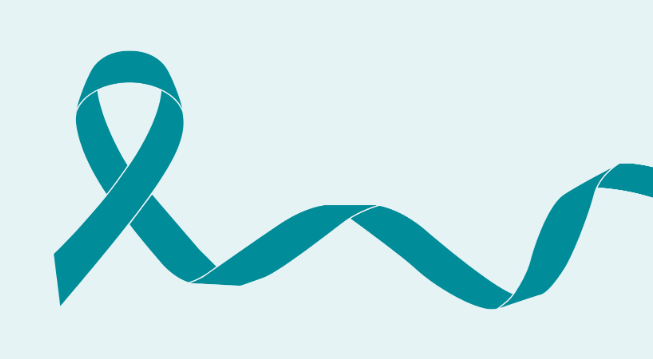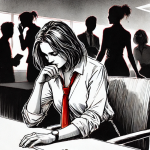
The Silent Aftermath: How Sexual Assault Reshapes Mental and Emotional Well-Being
Trigger Warning: This article discusses sexual violence and its impact on mental health. If you or someone you know needs support, please reach out to a trusted professional or resource.
💥 The Hidden Impact of Sexual Assault
Imagine experiencing something so traumatic that it rewires the way your brain functions, affects your ability to sleep, and even changes the way you trust people. That’s the reality for many women who have survived sexual assault. We talk a lot about the physical dangers of sexual violence, but what about the emotional and mental scars it leaves behind?
Here’s a stat that might shock you: Nearly 6% of women worldwide experience sexual assault by a non-partner, and 30% of women in relationships have experienced some form of sexual or physical violence by a partner. But the numbers only scratch the surface—the psychological and emotional toll is often unseen.
So, what does the science say about the long-term psychosocial impact of sexual assault on women? Let’s break it down.👇
🧠 The Psychological Toll: More Than Just a Bad Memory
Surviving sexual assault isn’t just about getting through the moment—it’s about living with the consequences. According to a scoping review of 21 studies analyzing over 20,000 women, the most common mental health consequences include:
🔹 Depression (13 studies) – Survivors are at 2.5 times higher risk of developing severe depression. 🔹 Anxiety (11 studies) – Many experience ongoing fear, panic attacks, and social withdrawal. 🔹 Post-Traumatic Stress Disorder (PTSD) (11 studies) – Up to 60% of sexual assault survivors develop PTSD, making it more common than in survivors of other types of trauma. 🔹 Alcohol Dependence (6 studies) – Many turn to alcohol as a coping mechanism, increasing the risk of addiction. 🔹 Sleep Disorders (3 studies) – Survivors frequently experience insomnia, nightmares, and disrupted sleep patterns.
These conditions don’t exist in isolation. PTSD and depression often occur together, creating a cycle of emotional pain that can last for years.
Wait, what?! Women who have been sexually assaulted are almost seven times more likely to experience suicidal thoughts. This isn’t just about emotions—it’s about survival.
😞 The Social and Relationship Fallout
Beyond mental health, sexual assault can reshape every aspect of a survivor’s life, from relationships to work performance.
💔 Trust Issues – Many survivors struggle to build or maintain romantic relationships. Some avoid intimacy altogether, while others engage in risky sexual behaviors as a form of emotional coping.
😶 Shame and Self-Blame – Society’s victim-blaming tendencies don’t help. Survivors often internalize the idea that they did something wrong, leading to intense feelings of shame.
🚨 Impact on Career and Education – Survivors miss work or school more frequently due to mental health struggles. Some drop out entirely.
🛠️ Breaking the Cycle: What Can We Do?
Here’s the good news: Healing is possible. Survivors are not alone, and there are ways to support recovery and prevent further harm.
✅ Try This: Steps Toward Recovery
1️⃣ Seek Therapy (Trauma-Informed Preferred!) – Cognitive Behavioral Therapy (CBT) and Eye Movement Desensitization and Reprocessing (EMDR) have been proven to help with PTSD and anxiety.
2️⃣ Build a Support System – Trusted friends, family, or support groups can create a safe space for survivors to share and heal.
3️⃣ Understand the Link Between Trauma and Substance Use – If alcohol or drugs have become a coping mechanism, finding a therapist who specializes in trauma and addiction can be crucial.
4️⃣ Prioritize Sleep Health – Creating a bedtime routine, reducing caffeine, and engaging in relaxation techniques can improve sleep patterns.
5️⃣ Advocate for Safer Communities – Supporting organizations that fight sexual violence, educating others, and pushing for policy changes can empower survivors and prevent future assaults.
💬 Let’s Talk About It
Sexual assault is not just a personal issue—it’s a public health crisis. Raising awareness about its psychological consequences helps reduce stigma and encourage more people to seek help.
👉 Have you or someone you know navigated the healing process after trauma? What strategies have helped the most? Share in the comments (or just know you’re not alone if you prefer to read and reflect).
🔗 If you found this helpful, share it! You never know who might need to read this today.
📌 Final Thought: Healing is Possible
Sexual assault leaves deep scars, but survivors are not broken—they are resilient. With the right support, education, and resources, recovery is absolutely possible.
If this article resonated with you, pass it on. Awareness is the first step toward change. 💜




